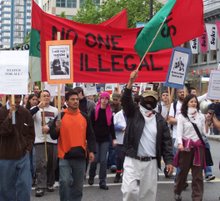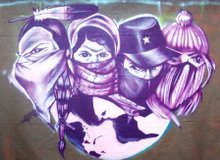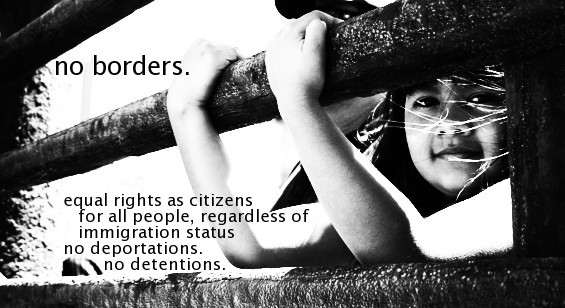Murder and Migration by David Bacon
Development projects anywhere in the world often have a high human cost. In Colombia, the price is often measured in human lives and blood. Esperanza (she would risk her life, she says, if her real name appeared in print) saw her neighbors pay that price in 2001. Her house sits on the bank of the Rio Salvajina, in the Afro-Colombian municipality of Buenos Aires in Cauca province. 'I saw armed men arrive in cars,' she remembers, 'with two, three, four, even five people tied up. They dragged them onto the bridge, shot them two or three times and threw their bodies into the river.' When the paramilitaries came to her own home, she was so frightened she lost the baby she'd been carrying for five months.
Today Esperanza is a community activist organizing against the hydropower project for which her neighbors were killed. If ratified by Congress, the U.S.-Colombia Free Trade Agreement, which President Bush and Colombian President Alvaro Uribe signed in mid- November, could lead to more such projects, she fears, and more such violence. 'It will permit many more development projects by multinational companies. Many more people will be displaced. And if they won't leave voluntarily, there will be more assassinations. We know this because we live with it already.' Esperanza's experience is a microcosm of the large- scale impact of corporate development in Colombia's countryside. One quarter of Colombia's nearly 43 million people are Afro-Colombian, and most live in rural areas, where resources like hydropower and gold and mineral deposits are concentrated. Far from enhancing the villagers' lives, however, these projects more commonly despoil their lands and force them to flee.
(Click here to read more)





